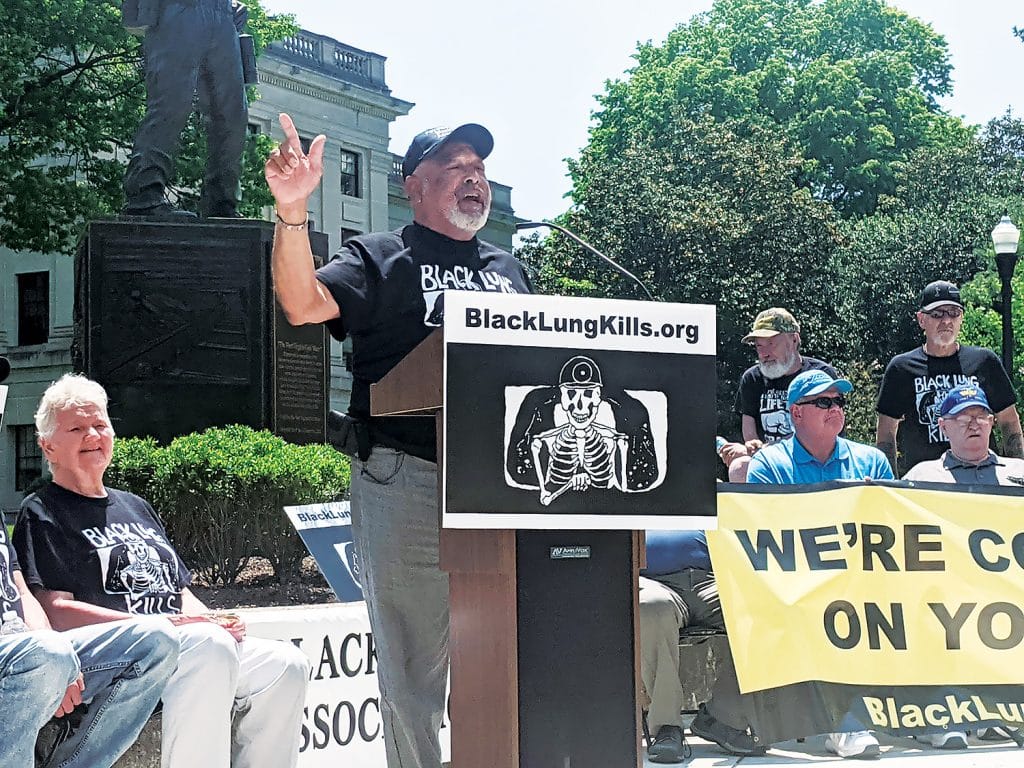After The Hoopla: What The 2010 Elections Mean for Mountaintop Removal
Story by J.W. Randolph & Bill Kovarik
The mid-term elections this November will have mixed results for efforts to end mountaintop removal coal mining, with Republicans gaining control of the U.S. House of Representatives for the next two years and Democrats retaining leadership in the U.S. Senate.
House of Representatives
The Clean Water Protection Act (CWPA) had 173 bipartisan cosponsors at the end of the 111th Congress. With 17 CWPA cosponsors already scheduled to retire or leave for higher office, most supporters of the bill maintained their seats during the election shift and will be supportive during the 112th Congress starting in January 2011.
Pro-mountaintop removal mining Democrats from Appalachia took a hit, with incumbents Rick Boucher (VA), Mike Oliverio (WV), Lincoln Davis (TN), Zack Space (OH), and Charlie Wilson (OH) all losing their seats. Nick Rahall (WV) remains the only Democrat Congressman in central Appalachia.
Fifteen cosponsors of the Clean Water Protection Act lost their re-election battles, including Tom Perriello of Virginia. Numerous regional supporters of the bill, however, regained their seats, including Shuler, Chandler, Yarmuth, Cooper and Connolly.
On average, the Democrats remaining in Congress for the 112th session will tend to be more progressive than the previous caucus. Of the roughly 54 conservative blue dogs from the 111th Congress, a whopping 29 will not be returning.
Bi-partisan support for the Clean Water Protection Act seems strong and will still be supported by six returning Republican cosponsors in the House, eight “bluedog” Democrats and eight bipartisan members from mountaintop removal states. Rep. Nick Rahall will no longer serve as chairman for House Natural Resources Committee, and his pro-mountaintop removal position will have less influence over other Democrats. Many Republicans will be looking for popular bipartisan bills such as the Clean Water Protection Act as they gear up for tough reelection fights in two years.
Senate
The lead sponsor of anti-mountaintop removal legislation in the Senate—the Appalachia Restoration Act (S 696)—is also a member of the Republican leadership, lending significant credibility to the bill. Although Joe Manchin, a very pro-mountaintop removal Democrat, won easily in West Virginia, all of the original cosponsors of the ARA won their reelections, and a Republican Congressman and CWPA supporter from Illinois, Mark Kirk, was promoted to the Senate. Barbara Boxer, who is chairwoman of the Environmental Committee and has often been outspoken on mountaintop removal mining in the past, also won her re-election easily.
TIDBITS
Protest by Planting: More than 50 people from Mountain Justice and Climate Ground Zero attended a non-violent protest on Kayford Mountain in October. About 20 protesters walked on to Patriot Coal’s mine site and planted hemlock, walnut, red oak and tulip poplar trees in protest of mountaintop removal coal mining. No arrests were made.
FOUL WATERS: Officials in Mecklenburg County, N.C., twice detected arsenic levels above state standards near an ash pond discharge pipe from the Riverbend power plant during October. The incident prompted a call for state regulators to enforce stricter regulations at the Duke Energy facility, situated upstream from Charlotte, N.C.’s main water supply.
Cumberland Plateau Protection: U.S. Senator Lamar Alexander (R-TN) filed a petition with the Department of the Interior requesting that a 1,200-foot, 67,000-acre Northern Cumberland Plateau ridgetop be considered unsuitable for surface coal mining.
Massey for Sale?: On November 22, The New York Times reported that the Massey Energy board of directors were “conducting a review of strategic alternatives,” possibly resulting in the sale of the company, “despite the objection of the company’s executive, Don Blankenship.” Several companies have expressed interest in buying Massey Energy, which holds some of the largest reserves of metallurgical coal.
Virtual Energy Policy: Makers of the documentary Deep Down teamed up with the popular computer game Second Life to create a virtual 3-D mountaintop removal coal mine and power plant, complete with an emerging power crisis for gamers to solve. The project includes videos and a curriculum for teachers. See http://deepdownfilm.org/virtualmine.
Carbon Capture Capital: The U.S. Department of Energy has officially committed $1 billion to FutureGen, the controversial carbon capture and sequestration (CCS) pilot project. The new Illinois facility would capture carbon dioxide typically released into the atmosphere by its coal-fired power plant and store the greenhouse gas deep inside the earth. Critics of CCS say it would take decades to realistically implement the technology on U.S. coal-fired power plants, numbering nearly 600.
Bo With A Purpose: Bo Webb of Coal River Mountain Watch was honored with a $50,000 Purpose Prize, a national award granted to social entrepreneurs over 60 who are “using their experience and passion to make an extraordinary impact on society’s biggest challenges.” Webb works on the campaign to end mountaintop removal coal mining in his native West Virginia.
COAL GETS A REALITY SHOW: Producers of the popular reality shows ‘Deadliest Catch,’ ‘Ice Road Truckers’ and ‘Ax Men’ will go underground with coal miners in the new show, ‘Coal,’ scheduled to debut in April 2011. The 10 episode series will follow miners and owners of the Cobalt Mine in Westchester, W.Va.
BOILER MACT AT THE BOILING POINT?: A bi-partisan panel of 41 senators oppose the EPA “Boiler MACT” rule, which requires the employment of special technology to filter toxic air pollutants, like mercury, from boiler emissions. In the letter to the EPA, senators expressed their concern that the blanket regulations would indirectly effect hundreds of jobs and do little to help the environment, and that the environmental safeguards for US boilers could rise into the tens of billions of dollars.
Related Articles
Latest News

Leave a comment
Your email address will not be published. Required fields are marked *





Leave a Comment